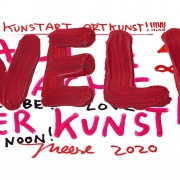- My trend 2019: Microsoftization - 17. December 2018
- Offline is the new cool - 20. December 2017
- Hooray, there’s life in us yet – three things we can learn from Air Berlin’s crisis PR - 5. July 2017
- Pepsi: 5 reasons why the soft drinks giant ended up in hot water - 11. April 2017
- The Hillary Effect: Five things we can learn from the US election debacle - 11. November 2016
- Starbucks: The calculated shitstorm is the epitome of marketing - 24. November 2015
Outrage across the world. How could Donald Trump, a hatemonger, racist and liar, have been elected as US President? The reasons behind the outcome are complex. However, one thing is certain: communication had a major impact on the result of the election. What can we learn from Hillary Clinton’s PR disaster?
First of all, political communication needs a vision. Trump packed his into the slogan “Make America Great Again”, however banal, primitive or vulgar you might find it. But can you remember Hillary Clinton’s slogan? No? That is precisely the problem. It was “Hillary for America”. So what vision was she trying to convey, what was she promising her voters and where was her call to act? In my opinion, the main thing that Clinton conveyed with her slogan was her desire to become President of the USA. If you were to summarise the essence of all of her statements, you would see that she hoped to bring experience, continuity and stability to the White House in times of political upheaval. She stands for relentless pragmatism, not dissimilar to the approach taken by fictitious President Frank Underwood in “House of Cards”. Even if you’ve seen just one season of this amazing Netflix series, you will understand why so many Americans failed to find their passion for a cold power politician. This is particularly true of liberally minded Americans, the Democrats’ core voters. They stayed away from the ballot box in their droves while political madman Trump and his sometimes insane-sounding tirades mobilised every fibre of his followers. Now let’s come to Angela Merkel and the current rise in right-wing demagogues. Do you know the Chancellor’s vision? Or her central promise? Experience, continuity and stability in times of political upheaval or something like that? When it comes to the next parliamentary elections, I am fearing the worst.
At first glance, it seems almost paradoxical that billionaire Donald Trump received a disproportionate amount of support from low-income voters and blue-collar workers. The answer to the puzzle is simple. In the battle for the White House, Trump was more successful as portraying himself as a good listener. In his speeches at the very least, he seized upon the fears of workers, those who feel alienated and afraid of social decline, and who have lost out due to globalisation and digitalisation. “The forgotten men and women of our country will be forgotten no longer,” was Trump’s central promise. And it didn’t matter that his economic plans, such as closing off the American market and scrapping international trade agreements, have raised fears among economists. For workers in the Midwest, who are afraid of losing their jobs due to the mass “dumping” of steel into the USA from the Far East, Trump’s attacks against China, globalisation and free trade signalled one thing: at least one of the presidential candidates is listening to us. How many people here in Germany feel like they are the forgotten men and women of their country? And which members of Berlin’s political scene can appoint themselves as this group’s protector with any form of credibility? Gabriel? Nahles? Seehofer? I believe that one of the biggest problems in political communication is that too many people feel that politicians are terrible at listening and have lost their relationship with the people. If the CDU-SPD coalition wants to gain at least a governable majority at the next election, they need to make a credible and personal promise to the people who are feeling forgotten.
Trump was also skilled at making the most of media reaction. Each one of his incitements, his intentional displays of brazenness, was duplicated a thousand times over. This is how he kept his name out there, compensating for the fact that Clinton had a lot more money, supporters and TV ads for her campaign. Do you think that this game is restricted to the USA? And what comes to mind when you think of the words Boateng and Gauland or Petry and an “order to shoot”? These examples show that the right wing here in Germany is also capable of unleashing waves of indignation with their planned provocations. Their goal is to create talking points and stir up emotions among their own followers. Sometimes it might be better to just ignore this unpleasantness, instead of putting the disseminators in the spotlight and allowing them to play the role of martyr.
Trump also proved himself to be the master of social media. Trump, who many Democrats see as the political incarnation of a scary clown, used social media to generate discussion, provoke and mobilise. And he relied hugely on some high-tech helpers. A study by the University of Southern California revealed that 400,000 socialbots were involved in political discussions regarding the US presidential election on Twitter. A total of 75 per cent of these opinion robots produced positive messages about Donald Trump. In an era where an increasing number of people live in a bubble of social media filters, this is a major competitive advantage. The German Chancellor Angela Merkel has already suggested avoiding the use of socialbots in the next German parliamentary election campaign. The SPD, Linke, Grüne and FDP parties also refrain from using these software robots. In contrast, the AFD has announced that it plans to use bots to stir up sentiment on a large scale on social media. Just one more reason to fear them in the run-up to the next election.
While pollsters and politically active Germans were caught off guard by Trump’s election victory, one academic – the linguist Elisabeth Wehling – had already predicted his win a long time ago. She and her research team have been studying politicians’ use of language and discovered that Donald Trump was a lot easier to understand than Hillary Clinton. Because he expresses himself at the same level as a child of primary-school age and uses specific words to cultivate images in his audience’s heads, he is easy for all sections of the population to understand. While this has garnered him the derision of intellectuals, it also ensured the votes of less-educated members of the population. Established parties and the media can also learn when it comes to ease of understanding. Maybe it’s time for a new era of understanding, for more clarity and less political jargon. Otherwise, we will encounter a lot more Hillarys here in Europe: highly skilled, politically experienced, unpopular and spurned by the voters.
This page is available in DE








